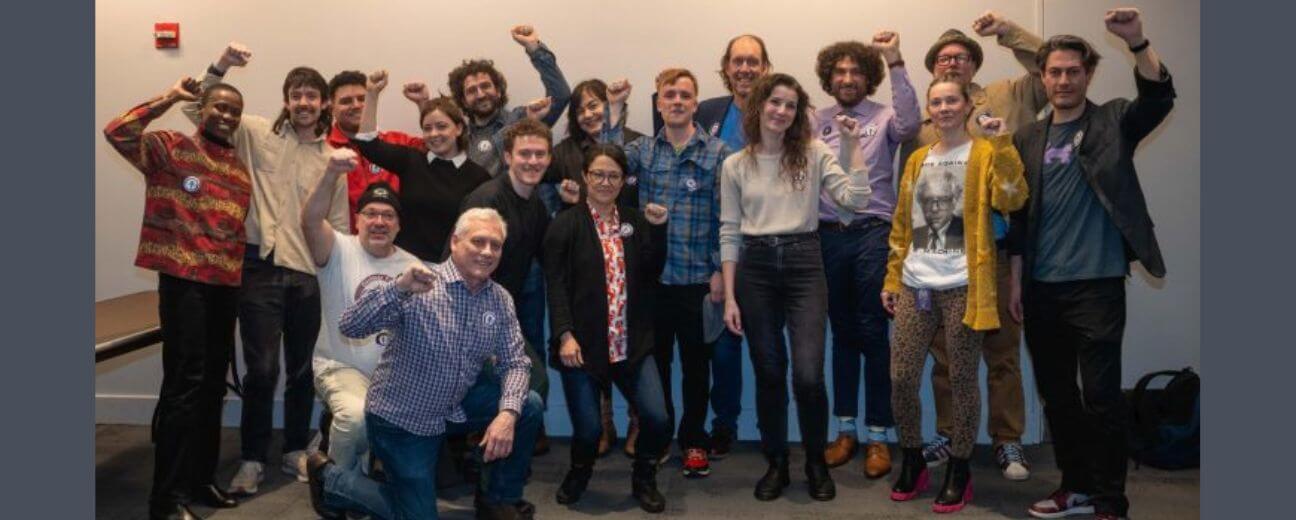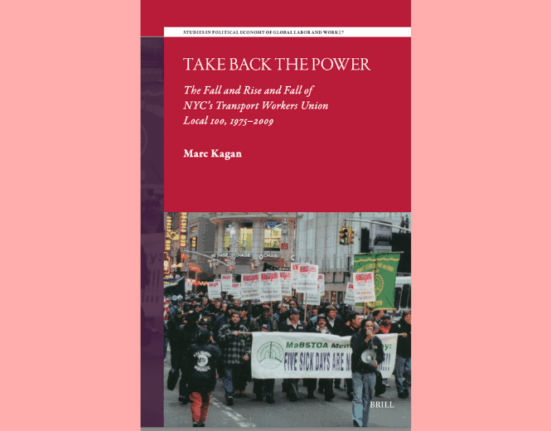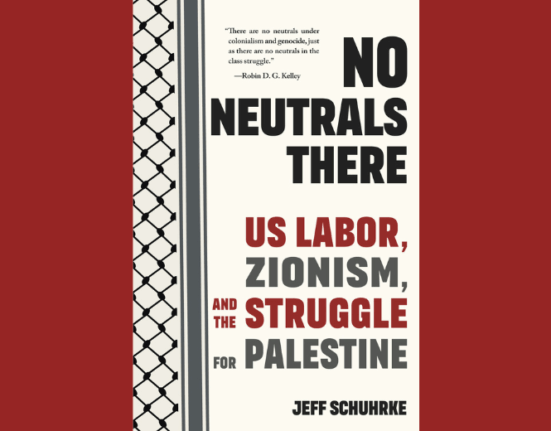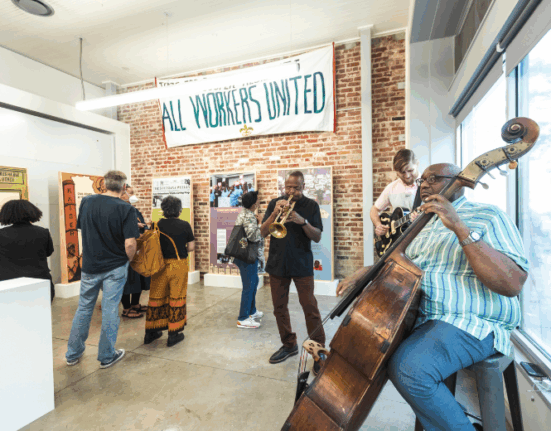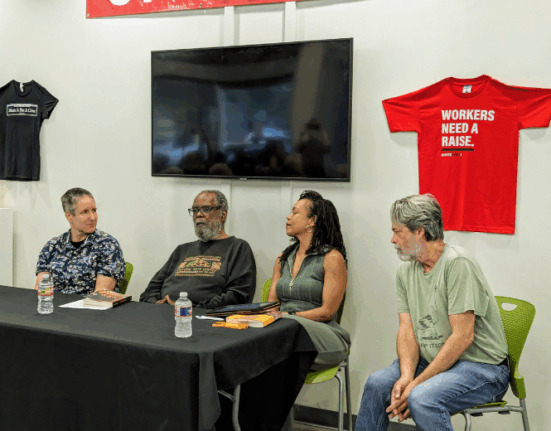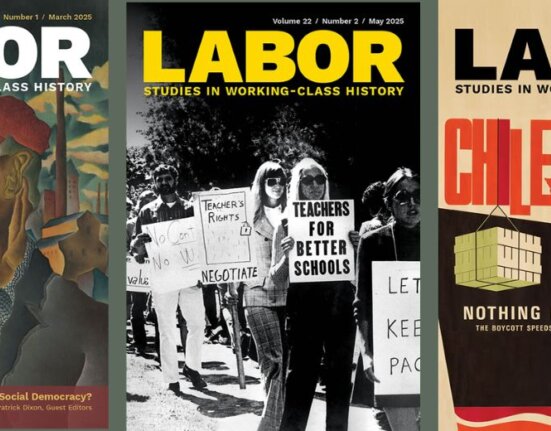On February 28, my contract faculty colleagues and I won our union, Contract Faculty United – UAW. My colleagues and I voted 553-72 to unionize and form the largest union for full-time, non-tenure track faculty any U.S. private school, by a margin of hundreds. That’s 88% of voters voting for their union, and a turnout of 67%. I basically gave my sabbatical last year to my union. Helping to organize a union is the best and most important thing I’ve ever done, probably ever will do.
“Full-time, continuing contract faculty” is the name New York University gives to a group that other universities sometimes call “lecturers” and are generically called full-time, non-tenure track. We are the fastest growing part of the American professoriate, now accounting for 19% of faculty across the country. Among the 1,000 of us at NYU, comprising a fifth of the faculty and half the full-time faculty, there is a wide variety of job titles and working conditions. I am lucky to be more or less indistinguishable from my tenured colleagues in how I am treated and paid, but colleagues in other parts of the university with the same title as me make tens of thousands of dollars less per year, teach considerably more, and get no research support. What unites us is that we all must apply for renewal — that is, reapply for our jobs — when our contracts expire, which happens (depending, again, on our title and school) every one, three, five, six, or eight years.
We are beset by big, imbricated problems at different scales. Climate change. Fascism breathing down our necks. U.S.-supported genocide. The defunding of and ideological attack on the very ideas of education and the public sphere. The problems are enormous. For any decent person looking over the crises in the world or the country or the academy, the question is what one can and should do. How can an individual respond? The problems are so big, how can I hope to fix anything? There are lots of legitimate and helpful ways to find an answer to that question. One of the ways I seek answers is to ask what my ancestors would do now, what they would want me to do. And the answer is: organize.
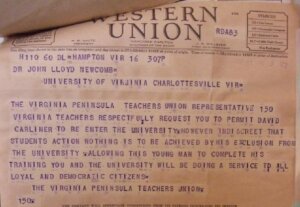
My mother’s father, born in 1918 the youngest child of two Yiddish-speaking immigrants, believed in agitation. The agitator is the part of the washing machine that gets the dirt out, he’d say. In high school he ended up on police watch lists for hanging out with Communists (he probably was one, at least for some time) and going to interracial dances. George Washington withdrew his college admission because he organized his high school classmates. He went to the University of Virginia instead and spent his time organizing against militarism and white supremacy. He got evicted from an apartment for talking to (organizing?) the Black housekeeper; he went to every county in the state to organize fellow students for peace, democracy, and freedom. (Sometimes it astounds me to consider the violence he must have faced as a Jewish 19, 20, 21 year old in rural Virginia organizing for a Communist platform against white supremacy. How terrified his parents must have been.) He was expelled from UVa for passing out handbills “in the Colored section of town,” as the police report described it. He briefly became a cause célèbre; there was an article in the New Republic demanding that he be readmitted. (He was not.) And in adulthood, he kept organizing and protecting others who organized as an immigration lawyer and a leader in the ACLU. Meanwhile on the other, German Jewish side of my family, my father’s grandfather was devoting his energy as a boss towards true collective bargaining in the ladies’ neckware industry. (His factory made collars and cuffs; the phrase about devoting his energy towards true collective bargaining is a direct quote from the death notice the ILGWU — his organized employees — put in the paper mourning his death.)
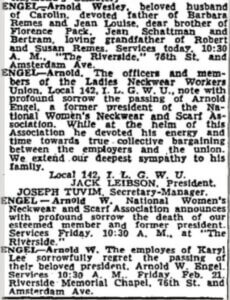
So when I ask what my ancestors would do in the face of global crisis, looming fascism, genocide, injustice — problems big and small, close to home and personal and big and international — I know the answer. They would organize, because no, you can’t do it on your own. The thing that defeats fascism, the thing that wins just economic transitions, the thing that will save the American academy from the politicians and donors and administrators who seek to dismantle it — it’s workers coming together and fighting. It’s unions.
Every spring I read and reread the story of Moses organizing, as A.J. Muste said, Bricklayers Local No. 1. We are all in Egypt, as Michael Walzer explains the Exodus, and the way out is by marching together. So I rolled up my sleeves, I went to countless meetings, I talked and talked and talked to my colleagues, and together with them I did it. With my beloved sisters and brothers, I made a union, just like I’m supposed to. Just like we are all called to.
(Header photo by the Washington Square News’s Matt Petres.)
Author
-

Jacob Remes is a historian of modern North America with a focus on urban disasters, working-class organizations, and migration. He is a founding co-editor of the Journal of Disaster Studies, the co-editor, with Andy Horowitz, of Critical Disaster Studies (University of Pennsylvania Press, 2021), and a series co-editor of the Penn Press book series Critical Studies of Risk and Disaster. His first book, Disaster Citizenship: Survivors, Solidarity, and Power in the Progressive Era (University of Illinois Press, 2016) examined the working class response to and experience of the Salem, Massachusetts, Fire of 1914 and the Halifax, Nova Scotia, Explosion of 1917. He has also written scholarly articles on a variety of other subjects ranging from interwar Social Catholicism to Indigenous land rights to transnational printers in the 19th century. His popular writing on subjects relating to his research has appeared in the Nation, Atlantic, Time, Salon, and elsewhere. Before coming to Gallatin,

